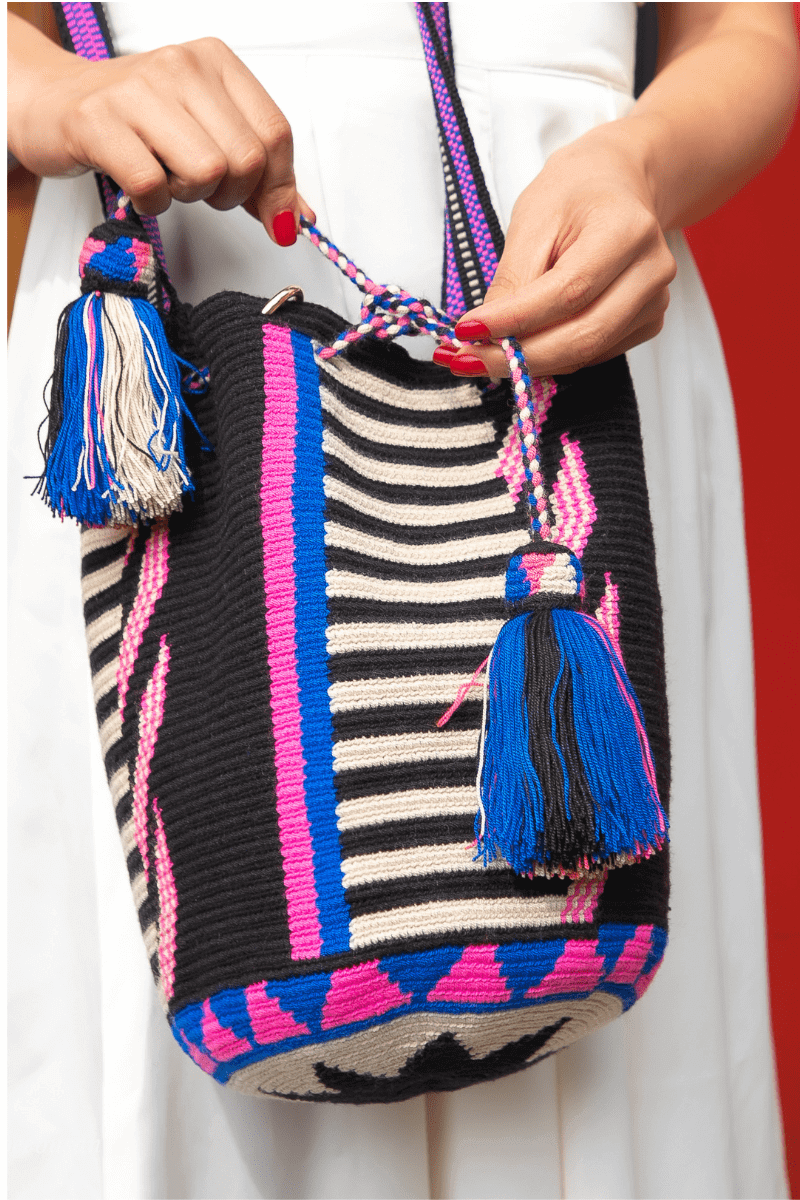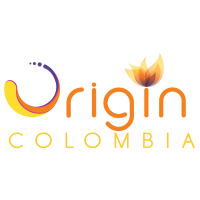
The Spirit of Wayuu Culture Unpacking the Inspiration Behind Iconic Patterns
Share
If you've ever held an authentic Wayuu bag in your hands, you know it’s more than just a beautiful accessory — it’s a handcrafted expression of Wayuu culture. But where do these iconic patterns and vibrant colors come from?
Let’s dive into the rich history and traditions of the Wayuu people of Colombia — and discover why Wayuu bags are considered true works of wearable art.

The Wayuu artisans are an Indigenous community from the Guajira Peninsula in northern Colombia and Venezuela. For generations, Wayuu women have passed down their ancestral weaving knowledge through a technique called susu — a form of single-thread crochet that brings each pattern to life with precision and care.
Materials That Preserve the Art
Today, authentic Wayuu bags are made using durable acrylic threads in vibrant color combinations, chosen for their ability to retain brightness over time. These threads are crocheted into unique geometric designs, turning every bag into a functional piece of art.

The patterns woven into authentic Wayuu bags are deeply inspired by the natural world surrounding the Wayuu people in the Guajira Peninsula. Each symbolic design reflects elements of their environment — the sun, moon, birds, turtles, plants, and more — carrying ancestral meaning passed down through generations.
The Meaning Behind Wayuu Symbols
A turtle pattern may symbolize wisdom and longevity, while birds represent freedom and spiritual connection. These designs are more than decorative; they are visual stories rooted in Wayuu heritage.
The Power of Color in Wayuu Weaving
The vibrant colors seen in our sustainable Wayuu bags also draw from nature. Artisans choose deep blues, lush greens, bright yellows, earthy browns, and vivid pinks — all reflecting the rich flora and fauna of La Guajira. Every color and pattern is selected with intention, creating handmade bags that are as meaningful as they are visually striking.

Authentic Wayuu mochila bags are far more than functional accessories — they are wearable pieces of art. Each bag is one of a kind, with patterns and color combinations selected by the artisan based on her personal inspiration and cultural knowledge.
Crafting a single Wayuu bag can take several weeks of meticulous work. Every stitch reflects the weaver’s skill, patience, and spirit. These handmade bags are a deep expression of creativity, heritage, and pride — carrying not just belongings, but the story of the woman who made it.

Beyond their beauty, Wayuu bags hold deep social and cultural meaning. In Wayuu tradition, they’re more than accessories — they’re gifts of love, often exchanged during weddings, births, and other life milestones.
These handcrafted bags also play a vital role in supporting Wayuu families. Through local and international sales, artisans earn income while keeping their ancestral knowledge alive — one stitch, one story, one bag at a time.

